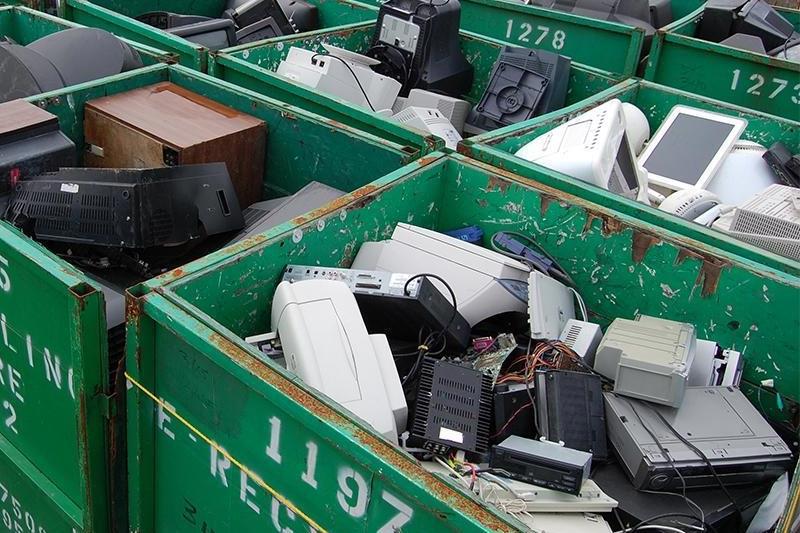There is a great deal of talk about sustainability these days across all industries, and consumer electronics is no exception. At CET&D we have covered a range of different initiatives aimed at cutting CO2 and making electronics manufacturing more environmentally sustainable.
But whenever you talk to those people tasked with improving sustainability, whether that’s through changes to the supply chain or by making electronics more repairable, there is always the elephant in the room of over-consumption.
It’s clear to anyone who cares to look that the human race’s addiction to consumption is the real driver of the climate catastrophe that is unfolding before our eyes. According to a 2016 UN report, human consumption of the Earth's natural resources has tripled in the last 40 years.
To put that in context: If Earth's entire history was condensed into a calendar year, homo sapiens would have existed for 37 minutes and in the last 0.2 seconds we have used one third of Earth's natural resources.
By anyone’s standards this is insane behavior. If a man living on a desert island destroyed one-third of the island within a few hours of being there, you would rightly conclude his chances of survival were slim to say the least.
And yet this pathology of mass consumerism is at the heart of every single industry on the planet, not least consumer electronics. How can industries whose survival depends on getting us to buy things we don’t need, address over-consumption?

Consumer electronics create millions of tons of e-waste each year. Picture: Pixabay
It’s a thorny question but it’s one that demands to be answered. Because without an answer, all those well-crafted PR campaigns touting consumer electronics companies’ sustainability credentials start looking pretty hollow.
Consider the following: According to Statista, the global volume in the consumer electronics market is forecast to increase by 710 million units between 2023 and 2028 (a rise of nearly 9 percent), with global volumes estimated to reach 9 billion units in 2028.
So it’s not just that consumer electronics companies are failing to address our already unsustainable levels of consumption. They’re actively pushing us to consume more.
There’s no better example of the tech industry’s disconnect between appearance and reality than Apple. The world’s leading tech company has gone out of its way to tout its sustainability credentials, claiming it has been carbon neutral for its global corporate operations since 2020 and that it will become fully carbon neutral by 2030.
Its CEO Tim Cook told Popular Mechanics in an interview last year that Apple “want to leave the earth better than we found it, and that means solving some really difficult issues.”
Cook gave the interview to coincide with the release of the iPhone14, a device which according to Apple’s own estimates will create 60kg of carbon emissions throughout its lifetime. If you took just one quarter’s worth of sales of iPhone 14s (37 million units for the first quarter of 2023), that scales up to 2.25 million tons of CO2 that the company has unleashed on the world. In just one quarter!
In this context, Cook’s pledges of environmental governance come across like a man who has just helped burn down your house promising to lend a hand rescuing some of the furniture.

The reality of the climate crisis can no longer be ignored. Picture: Pixabay
Of course, the hard truth at play here is that there’s no solution possible in the current paradigm. The entire western world – and much of the rest of the planet, at this point – is set up along the model of mass consumption.
Changing that model would require such a seismic shift in human consciousness, and it’s clear that if that ever comes it’s not going to be the electronics companies leading the way. But the truth is, our planet’s future (and therefore our survival) requires that we make this shift.
This isn’t a hypothetical anymore. The climate catastrophe is happening right before our eyes: wildfires raging all across the world; glaciers disappearing to nothing; temperature highs broken year after year. And whether they choose to see it or not, the fact remains that electronics companies are contributing to this unfolding disaster.
I’m sorry, but you cannot have your cake and eat it. Sustainability goals that are contingent on shareholder dividends are not sustainability goals at all. They are window-dressing; the moving around of chairs on a sinking ship; they are Nero fiddling as Rome burns.
The only truly sustainable goal right now is to consumer less. And on a planet of ever-dwindling resources this is the future we are headed to anyway. The only question is whether we make that choice ourselves or whether it is forced upon us.

